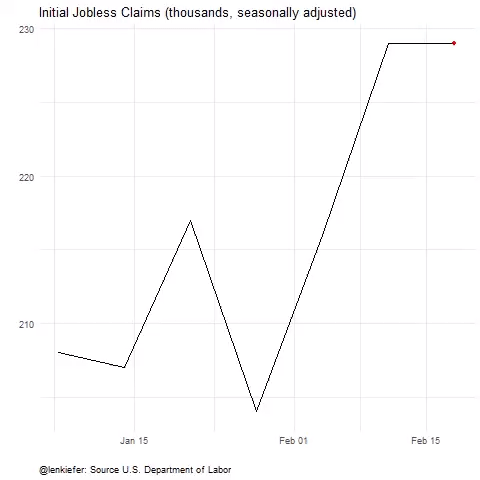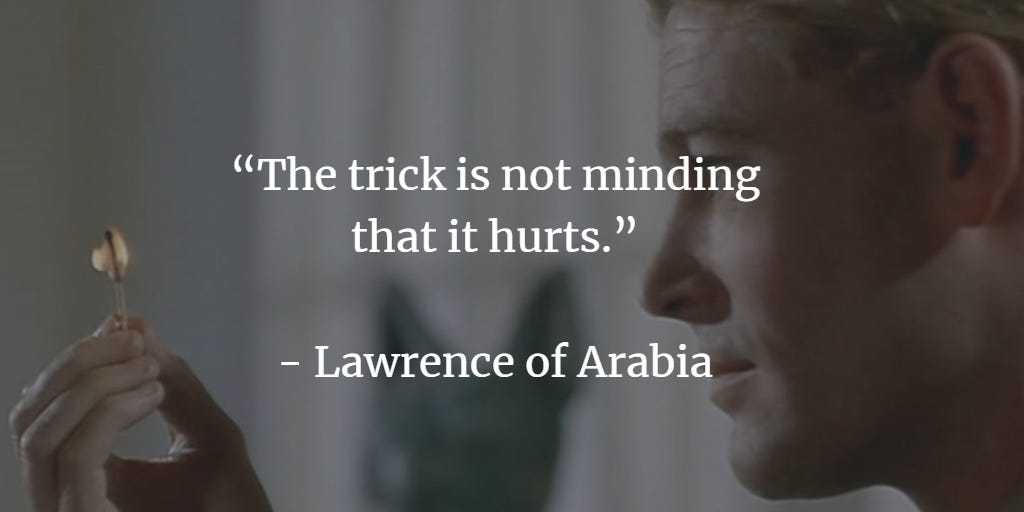It's been a crazy year, hasn't it?
We've all had it rough. Some have had it rougher than others.
Each time you want to scream, you're politely told, "Please scream inside your heart".
Hope you've been able to stay safe and sane through the worst times.
Now, nearly a year into the pandemic, we're fighting back. It looks like life might go back to normal sometime in 2021 🤞🤞.
Heartfelt thanks to the true heroes - nurses and doctors at the frontline, contact tracers helping dampen the spread, and the scientists bringing us the vaccines in record time.
On a personal note, I hit issue #100 of Sunday Reads earlier this year. Check it out at The best of Jitha.me. Thank you all for your time, input, advice, and encouragement. Means a lot to me.
For today's issue, the last Sunday Reads of 2020, let's look back at the year that was.
Wish you a wonderful holiday season. Stay healthy and spend as much time as you can with loved ones and friends (on zoom if not in person).
See you on the other side.
1. The World of COVID-19.
Well, we've all aged several decades in 2020.
First, COVID struck us as a Black Swan. We predicted the pandemic, but everything else took us by complete and utter surprise.
The unemployment rates were a 30-sigma event.
Watch the video in the tweet right to the end.
The stock market continued to rise.
As if nothing happened at all 🤔.
And while the pandemic rages, people in many parts of the world still refuse to wear masks.
But we’re finally beating the virus back.
We developed a vaccine in record time.
Quoting Patrick Collison from Fast, as I did in Sunday Reads #113:
On January 10 2020, the SARS-CoV-2 genome was published.
3 days later, Moderna finalized the sequence for mRNA-1273, its mRNA vaccine candidate; the first batch was manufactured on February 7.
On February 24 (45 days after genome publication), Moderna shipped the first batch of mRNA-1273 to the NIH for use in their Phase 1 clinical study. 266 days of clinical trials and regulatory coordination followed.
On November 16, Moderna announced that the vaccine's efficacy was 94.5%.
This tweet sums it up:


As I reflect on this year, I'm reminded of this saying from Marcus Aurelius: "The obstacle is the way".
This year, humankind has tapped into reserves of ingenuity, speed, and stubborn determination that we didn't know we had!
Built effective protocols to socially distance and slow down the pandemic. (And remember, these protocols were often politically unpopular).
Developed a 95% effective vaccine with a new technology we haven't used before.
Migrated to a completely new way to work.
Feels like the obstacle was indeed the way.
2. The World of Startups.
A few months ago, I read this excellent thread from @visakanv:
As he says in the thread: to survive, optimize for staying in the game. Minimize existential risks - keep doing the right simple things, and they will compound.
This leads to the #1 lesson for startups...
Keep it simple, stupid.
As I paraphrased legendary investor Fred Wilson in Sunday Reads #84:
In sport, you have to execute the perfect move to win. You have to do something complex and intricate. Do a triple flip and a pirouette as you dive into the water to get the gold. Hit a 5,000 rpm topspin serve into the far corner to get past Federer.
But in business, you've got to keep things simple.
Unlike sports like diving or skating, you don’t have just one or two or three attempts to win. In startups, you get to show your stuff every day, all the time.
So the better approach is to pick something simple to execute, nail it, then build on it with another relatively simple move, nail that too, and keep going.
Business is like amateur tennis. You don't need to top spin the ball into the far corner like Rafael Nadal. Just keep the ball in play, smack down the middle of the court. It's boring, yes. But that's a feature, not a bug.
Tactical Execution >> Strategy.
As I mentioned in Sunday Reads #106, the greatest strategy in the world is worth exactly nothing, if not executed right.
Success means tenacious and relentless execution measured in years.
As Steve Blank says in Strategy First. Then Relentless Tactical Execution, the “strategy” of learning who SuperMac’s customers were, what solutions they needed and what its repositioning would be was a three month effort. The tactical execution took three years.
It wasn't enough to get the insight that customers care about four specific applications, vs. speed in general. It wasn't enough to know that there was no industry benchmark. It wasn't enough to know which three magazines enabled customer reach.
The SuperMac team had to first make their benchmark the industry standard. They had to educate the publications about what customers want. And why their benchmark is the best way to measure it.
They had to work with Engineering to make sure that their boards always ranked at the top, no matter what competitors did to catch up.
They had to execute.
Speed as a competitive advantage.
As I said in Sunday Reads #101:
A lot of discussion on startup and business strategy ultimately comes down to one single piece of advice.
"Build a moat". Build a competitive advantage.
But what if you have no moat yet?
Turns out, you can generate a moat out of thin air, by simply being fast. By hustling.
Yes, speed can be a lasting competitive advantage. In fact, as per Elon Musk, maybe it's THE lasting competitive advantage.
The fastest company in any market will win.
Sometimes, you think it’s impossible for your organization to be any faster than it already is. If you go any faster, you’re sure things will break.
At such times, check out Patrick Collison’s list of examples of unbelievable speed. It’s called… Fast.
On August 9 1968, NASA decided that Apollo 8 should go to the moon. It launched on December 21 1968, 134 days later.
The iPod shipped within 290 days of starting development.
Amazon started to implement the first version of Amazon Prime in late 2004. It went live on February 2, 2005, six weeks later (!).
3. The World of Careers and the Workplace.
In Sunday Reads #111, I asked a question:
How would you discount your life?
Most of us have learnt about "time value of money". Many would call it Finance 101.
Well, it turns out you can apply the concept of "time value" to much more than financial investments.
If you’re planning your career over two year horizons (or even five years!), you're discounting the future at a high rate. You’re way too short-term focused.
In the same vein, complacency is cancer. If you're happy in a dead-end job, then you're implicitly assuming that your career will end soon. It’s OK to focus on “exploiting” in the last year of your career, but not when you have 20 years left.
So when you’re mulling your next career move, don’t think about just the next 1-2 years or even the next 5 years. See how the new role fits in your 30 year working life. How does it help your skills, your expertise, your effectiveness compound?
Whenever you catch yourself saying "Let me try this for a year, and we'll see after that", ask yourself, how am I discounting the future? How am I discounting my life?
Remember: For any action with long-term impact, a majority of the value comes well after Year 5.
I’ll leave you with the graph from Sunday Reads #111:
Even with a 20% discount rate (which is exorbitantly high), 50% of the value comes after Year 5.
Being Effective When Working Remote.
This year, we all moved to working remote. And this feels like a semi-permanent change - it'll be very hard to go back to how things were (and some feel we'll never go back).
So it's important to adjust to this new normal.
Team Management when working remote.
From Sunday Reads #93:
I talk through each of the five principles in detail here. Do check it out.
Better Hiring.
Turns out, there are seven key principles to hiring, and they apply whether you're working remote or in person.
From Sunday Reads #95:
Hire only when you absolutely need to.
Don't be too hard on yourself. 1 in 3 hires don't work out - if you do it right.
False Positives are OK. False Negatives are not.
What to look for in candidates: drive and self-motivation, innate curiosity, and ethics.
A few tips for running an interview process. Most important one - do reference checks.
How to let people go. Decisively, but with sensitivity. It's your fault that you hired them into a role where they can't succeed
Diversity will not happen on its own. You've got to make it happen.
You can dive into each of these seven principles here.
How to communicate when working remote.
I'm tired of Zoom meetings, and I know you are too.
Surely there must be a better way?
There is. Writing.
As I wrote in Sunday Reads #90,
Writing makes things clearer. Writing forces you to be coherent.
Writing saves time. Five people in a room for an hour isn’t a one hour meeting. It’s a five hour meeting.
Writing removes extrovert bias. Meetings favor folks who think out loud. They don't favor clear thinking, only fast thinking.
Writing makes meetings a last resort.
Basecamp wrote an excellent guide to communication in remote work ages ago. It’s a must-read. My favorite pointers:
Writing solidifies, chat dissolves. Substantial decisions start and end with an exchange of complete thoughts, not one-line-at-a-time jousts. If it's important, critical, or fundamental, write it up, don't chat it down.
Meetings, video conferences, calls, etc. are opportunities to interrupt and be interrupted. Instead, always default to writing for important decisions.
Meetings are the last resort, not the first option.
And that’s a wrap!
That’s it for this edition of Sunday Reads.
Now, I know we all want to forget 2020 (the wife suggested I title today’s edition “Saying F**k You to 2020” 🙄).
But 2021 isn't going to be easy either, folks!
Let's remember to be courageous (in all its different meanings), and support one another in bringing the world back to normal.
It'll be tough, it'll be painful. But let's do it anyway.
In the words of Lawrence of Arabia,
Hope you liked the articles. Drop me a line (just hit reply or leave a comment through the button below) and let me know what you think.
See you next year!
Jitha















